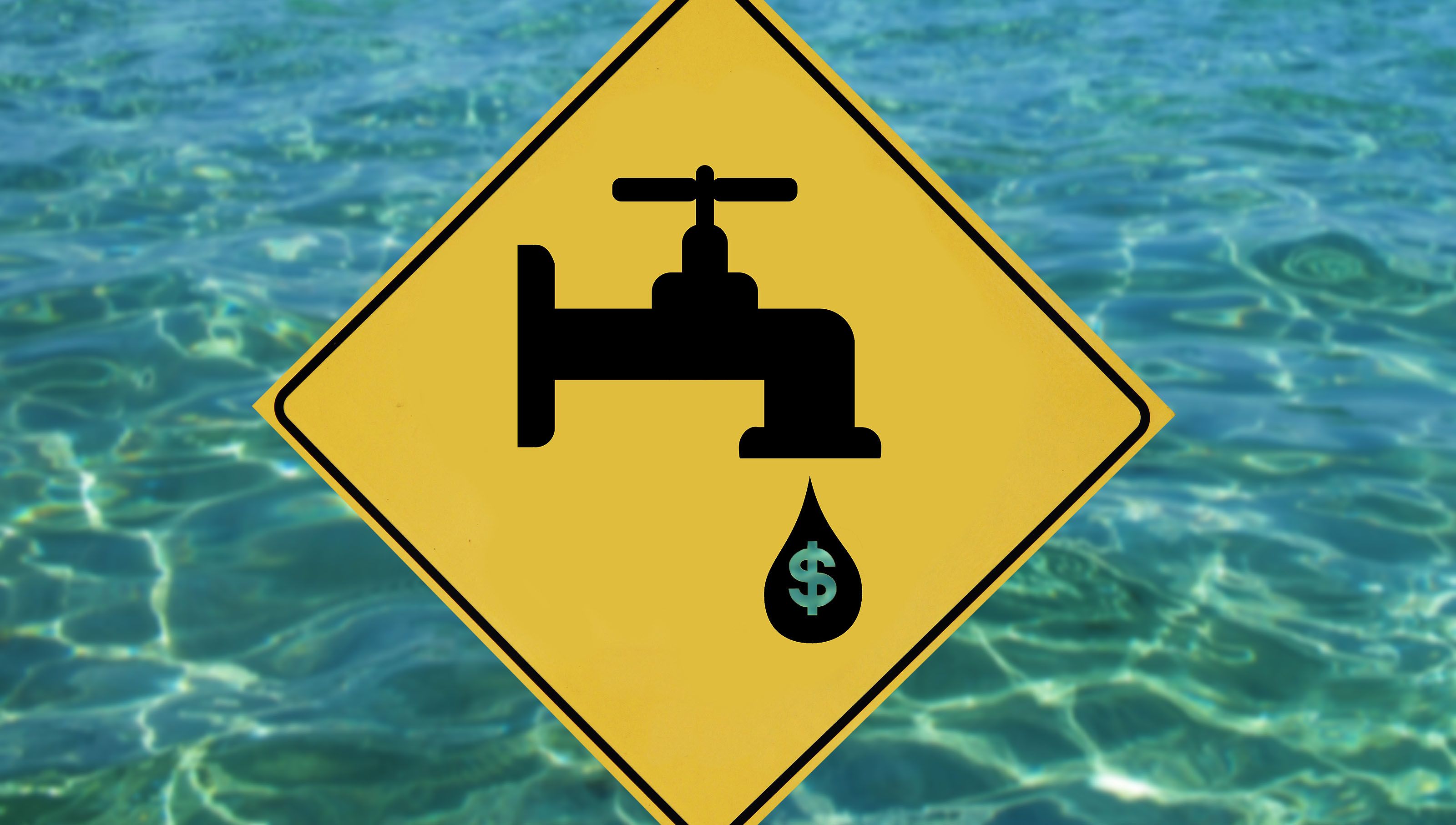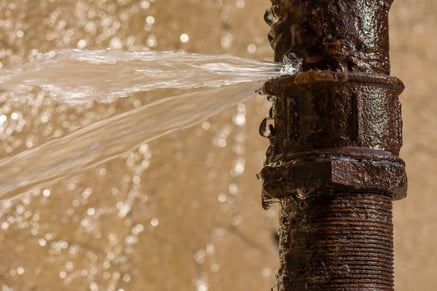
Dread washes over you like the water that used to be in your pool the moment you realize there might be a leak. Is there a leak? How did it happen? When did it happen? And the scariest question, how much will it cost to repair it?
This is a common problem that plagues many concrete pool owners. Leak repairs can cost hundreds to thousands of dollars, so it’s important to know the details associated with them.
Since we at River Pools have a lot of experience with installing and servicing swimming pools, we’ll discuss the types of concrete pool leaks, concrete pool leak detection, and concrete pool repair in the following sections.
Types and Causes of Concrete Pool Leaks
Concrete pools are made to last decades, and with good care and maintenance, they can. However, there are three major leaks that affect concrete pools:
- Structural leaks
- Fitting leaks
- Plumbing leaks
Concrete Pool Structural Leaks
A structural leak is a leak in the structure of the vessel itself. For concrete pools, this most likely means a crack or fissure in the pool shell, which must be repaired immediately.
Causes of Structural Leaks
Structural leaks typically occur when there is a crack in the pool’s shell. These structural cracks are often caused by:
- Poor construction or engineering
- Ground movement
- Pressure from groundwater
- Settling due to shifting soil
- Freezing and thawing cycles
Read Next: Concrete Pool Repair: Structural Problems
Concrete Pool Fitting Leaks
A fitting is any penetration through the pool shell. Think things like lights, skimmers, and even jets. And because concrete pools are not watertight, the opportunity for leaks is higher.
Causes of Fitting Leaks
The cavity of the pool is mainly plumbing, and when a fitting is inserted, builders simply pack in plaster around it, leaving those areas vulnerable to leaks. For example, if areas around railings or tiles are loosely fitted, leaks are more probable.
Concrete Pool Plumbing Leaks
Plumbing in a pool can be fickle. Correct installation is critical because if it moves at all, it can leak. This means that the plumbing needs to be secured during installation. If it’s held down with straps or run all the way to the ground, you can rest easy that your plumbing will not move.
Causes of Plumbing Leaks
Plumbing leaks are caused by the movement of the system. Settling in the ground, for example, can cause systems to move, creating a leak in the plumbing. Corrosion is another issue that may cause a swimming pool's plumbing system to leak.
Identifying a Pool Leak
The process of concrete pool leak detection can be fairly transparent if you know what to look for. For example, if you are experiencing any of the following, you likely have a leak:
- Cracks or gaps in the concrete vessel
- Settling of the vessel into the ground
- Displaced or loose tiles
- Mushy spots or standing water around the pool
- Needing to add more water than usual
- A significantly increased water or electric bill
- Algae forming quickly after a chemical treatment
- The automatic filler constantly releasing water
Hacks for Identifying a Pool Leak
- Use Food Coloring: If you know you have a leak but want to be sure of the location, grab some food coloring and squeeze it near the cracked area. If there is a leak, you’ll likely see the food coloring get sucked into the crack. The same applies to areas around fittings (main drain, return, and lights) and also the mouth of the skimmer.
- The Bucket Method: Place a 5-gallon bucket on the second step of your pool. Fill it to match the water level in your pool. Turn off the pump and check the levels in 24 hours. If the water in the bucket is higher than the water surrounding it, you probably have a leak.
Once you’ve determined that you have a leak, the next step is to repair it.
Repairing Concrete Pool Leaks
Concrete pool leak repairs can be extensive and costly, depending on the damage. After pinpointing the culprit of the leak, you may be able to repair it yourself with a temporary patch, or you’ll be forced to immediately call professionals to make the repairs (we strongly advise getting leaks fixed by a professional ASAP).
How do you fix a pool leak?
- Fittings Leaks: To repair a leak near the faceplate, jets, or lights, you can likely put silicone around it to secure the water and stop the leak.
- Plumbing Leaks: If you think there is a leak in your plumbing, call a professional. It could involve digging up the foundation around the pool and/or replacing pipes. This would be one of those scarier leaks that will likely cost more to repair.
- Main Drain Leaks: Unfortunately, the only option to repair the main drain is to replace it. While you wait for the replacement, you can plug a pipe into the drain and turn it off completely.
- Skimmer Leaks: A temporary fix for a leak in the skimmer is to patch it with silicone. Most cases require a skimmer replacement as a permanent fix.
Preventing Concrete Pool Leaks
When it comes to preventing concrete pool leaks, the secret is in the installation. Concrete pools are made to withstand years of use if installed correctly. Make sure that:
- The plumbing is pressure tested and tightly secured
- The fittings are tightly placed
- The pool is engineered by professionals with the foundation and soil of your property taken into account
One of the main drawbacks of owning a concrete pool is the overall cost. Upkeep and repairs can both be very expensive, even for minor issues. Fiberglass pools cost significantly less to maintain, have a long lifespan, and aren’t as prone to leaks and structural damage as concrete pools.
If you want to learn more about fiberglass pools (or compare them to concrete pools), you can visit our learning center, browse our catalog of models, or download our free ebook below.
Up Next:
Inground Concrete Swimming Pool Cost and Price Guide 2020
Pool Plaster Repair 101: Common Pool Plaster Problems and How to Fix Them
Jason Hughes is a partner at River Pools Virginia, a fiberglass pool installation company based in Warsaw, Virginia. With over 20 years of hands-on experience, Jason has dedicated his career to helping families create beautiful, functional backyards while ensuring every fiberglass pool installation meets the highest standards of quality and safety. In addition to his work with homeowners, Jason serves as a GENESIS instructor with the Pool & Hot Tub Alliance (PHTA), where he teaches fiberglass pool installation best practices to pool professionals across the country. Whether he’s on a job site or leading a training session, Jason is passionate about raising the bar for fiberglass pool installations and helping families make confident, informed decisions as they transform their outdoor spaces.



